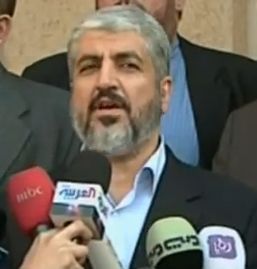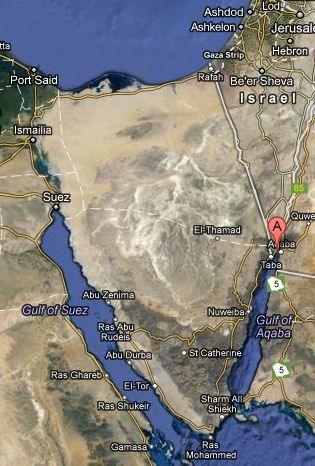 Everything you need to know about today’s media coverage of Israel and the Mideast.
Everything you need to know about today’s media coverage of Israel and the Mideast.
Why are India and China so interested in a proposed Eilat-Ashdod railway? How did Israeli cyber-security rank so highly in a study? And what to make of reports that Syria’s first lady tried flee the country?
Join the Media Cheat Sheet Page on Facebook.
Israel and the Palestinians
• Palestinian activists tell AP that the Fatah and Hamas have created an environment of intolerance in the West Bank and Gaza. These two quotes ring in my ears:
- “I feel like the Palestinian Authority is going backward,” said Zayid, a resident of Cliffside Park, New Jersey. “That is not the state I am fighting for.”
- “There’s a lack of accountability, a lack of laws enshrining rights,” said Jabarin. “We can’t talk about a culture of institutions and the rule of law.”
• The Turkish government denied reports that it offered $300 million to Hamas. But Today’s Zaman says the door’s open for the group to relocate its HQ.
• Hamas chief Khaled Mashaal paid his first official visit to Jordan since Hamas was expelled 13 years ago. See coverage in the Daily Telegraph and NY Times, among others.

• Time breaks out the violins for the Palestinian economy’s dire straits. The Ramallah street blames Congress, but the PLO leadership knew what it was doing when it began pushing for unilateral statehood.
• Israeli police shut down two eastern Jerusalem organizations with Hamas ties. According to Haaretz, a charity organization and a soccer club hosted Hamas activities and received money from the terror group.
• Maan News picks up on Bibi’s live chat on the Prime Minister’s Arabic Facebook page, taking questions from individuals and reporters.
Iranian Atomic Urgency
• US Defense Secretary Leon Panetta reiterated to 60 Minutes his belief that Iran is one year away from producing a bomb. It’s a followup to this December interview. Here’s the new followup interview, which includes parts of the first piece.
Arab Spring Winter
• The Free Syrian Army foiled an attempt to smuggle first lady Asma Assad out of the country. YNet writes:
According to the Egyptian daily, the sources claimed that Asma Assad, her children, Bashar Assad’s mother and his cousin were all in a convoy on the way to the airport when rebel forces under the command of a former senior officer in the Syrian army, blocked the their path.
After heavy exchanges of fire, the presidential security forces managed to get the convoy back to the presidential palace.
Revolution or not, the Desert Rose is still having a pretty good hair day. Here’s a soothing picture from Mrs. Assad’s Facebook account posted earlier today — 43 people even gave the photo album a thumbs up.

• The press scrutiny of Mrs. Assad’s continues with Martin Fletcher asking, Has Syria’s Princess Diana become its Marie Antoinette?
• When it comes to Reuters and its verbal gymnastics to avoid using the word terror, I think Bashar Assad is finally starting to understand my frustration. If one man’s terrorist is another man’s freedom fighter, what does that say about whoever blew up a gas pipeline?
And as for the skeptical quote marks that Reuters placed around the T-word in both the headline and the lead ‘graph, what does that say about Assad’s own War on Terror Freedom?

• Bashar Assad’s feeling no love from this Times of London staff-ed.
• The Egyptian military junta’s feeling no love from this LA Times staff-ed.
Rest O’ the Roundup
• A Brussels-based think tank ranked Israel, Sweden and Finland as the top countries for cyber security. Of Israel, the Financial Times (via Google News) writes:
Outside Europe, the SDA report rates Israel cyberdefence very highly, with the country claiming to face “1,000 cyberattacks every minute.” Israel has responded by formulating national policies to counter cyberattacks and is implementing a five-year plan “to place itself in the global cybersecurity lead”.
The study was done by Security Defence Agenda.
• Israeli officials are interested in creating a Red-Med rail link to compete for “safeguard” the flow of goods traversing the Suez Canal. At this point, there’s neither approval nor funding for the proposed 350 km Eilat-Ashdod track.
The proposal already has the attention of China and India. According to Reuters:
Israeli officials rebuffed any suggestion the railway plan came in response to political turmoil in Egypt and the rise of Islamist parties, though Israel has quietly been preparing for the possible erosion of its landmark peace accord with the neighbouring Arab power.
One official told Reuters the railway was a safeguard against the Suez proving incapable of handling surging maritime trade. The canal handled 8 percent of global seaborne traffic in 2009, Egyptian authorities say.

• Deputy foreign minister Danny Ayalon (Israel HaYom) weighs in on Israel’s public diplomacy, nation-branding, and democracy.
(Image of Mashaal via YouTube/AlJazeeraEnglish)
For more, see Sunday’s Media Cheat Sheet.

